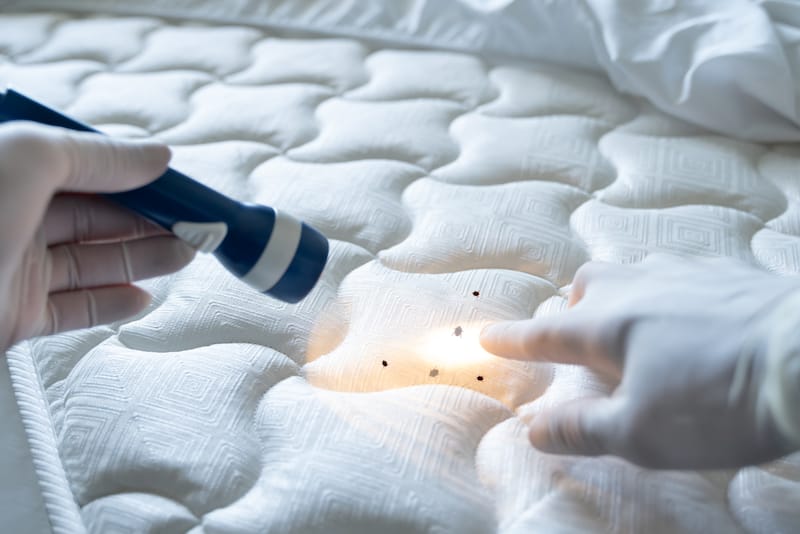In today's environmentally conscious world, the hospitality industry is increasingly focusing on sustainable practices to enhance guest satisfaction and safety. One crucial aspect of hotel management is maintaining a pest-free environment without relying on harmful chemicals. How hotels monitor for pests without chemicals has become a priority, not only to protect the health of guests but also to preserve the environment.
Hotels, being bustling hubs of activity, are naturally prone to attracting pests. Traditional pest control methods often involve the use of chemicals, which can pose health risks to guests and staff. Therefore, hotels are now exploring innovative, non-toxic solutions to monitor and manage pest problems. This article delves into various methods hotels use to keep pests at bay, ensuring a safe and comfortable stay for their guests.

Why Chemical-Free Pest Control Matters
The importance of chemical-free pest control cannot be overstated. With increasing awareness of the adverse effects of chemicals on health and the environment, hotels are under pressure to adopt eco-friendly pest management strategies. Using non-toxic methods reduces the risk of allergic reactions and other health issues among guests. Moreover, it prevents the contamination of food and water sources within the hotel premises.
Furthermore, adopting sustainable practices enhances a hotel's reputation and can attract environmentally conscious guests. By showcasing their commitment to health and sustainability, hotels can differentiate themselves in a competitive market.
Innovative Monitoring Techniques
Hotels employ a variety of strategies to monitor pest activity without resorting to chemicals. One popular method is the use of electronic pest monitoring systems. These systems utilize sensors to detect pest movements and provide real-time data to hotel management. By analyzing this data, hotels can identify potential infestations and address them proactively.
Another effective approach is the use of pheromone traps. These traps attract pests using natural scents, allowing hotel staff to monitor pest activity without deploying harmful chemicals. Regular inspections and maintenance of these traps help in keeping pest populations under control.
Some hotels also invest in ultrasonic pest repellers. These devices emit high-frequency sound waves that are intolerable to pests, driving them away without causing harm to humans or pets. This non-invasive method is particularly effective in deterring rodents and insects.
Natural Deterrents and Barriers
In addition to monitoring systems, hotels often use natural deterrents and barriers to keep pests at bay. Essential oils such as peppermint, eucalyptus, and lavender are known for their pest-repelling properties. Hotels can use these oils in cleaning solutions or as room sprays to create an inhospitable environment for pests.
Physical barriers also play a crucial role in pest prevention. Hotels ensure that their premises are well-sealed, with no gaps or cracks that pests can exploit. Routine maintenance of doors, windows, and plumbing systems is essential to prevent pest entry.
Furthermore, hotels can implement landscaping techniques that discourage pest breeding. For example, maintaining clean and dry surroundings, regular trimming of bushes, and proper waste management can significantly reduce the likelihood of pest infestations.
Collaborative Efforts and Training
Effective pest management requires a collaborative effort from all hotel staff. Training programs and workshops can educate employees about the importance of maintaining a pest-free environment and the role they play in it. Staff should be trained to identify signs of pest activity and report them to management promptly.
Moreover, hotels can partner with external experts to conduct regular pest inspections and provide guidance on sustainable pest management practices. Collaborating with professionals ensures that hotels stay updated on the latest non-toxic pest control methods.
Benefits of Non-Chemical Pest Control
Adopting chemical-free pest control methods offers numerous benefits to hotels. It enhances guest safety and comfort, reduces the risk of legal liabilities, and aligns with global sustainability goals. Additionally, it minimizes the ecological footprint of the hotel, contributing to environmental conservation.
For more insights on sustainable pest management, check out this resource on pest control in the hospitality industry.
Conclusion
As the hospitality industry evolves, hotels are increasingly turning to non-toxic pest control methods to ensure the safety and satisfaction of their guests. By investing in innovative monitoring techniques, natural deterrents, and collaborative efforts, hotels can effectively manage pest problems without relying on harmful chemicals. This commitment to sustainability not only protects guests but also enhances the hotel's reputation in a competitive market.
For more about how these methods are applied in different settings, explore this article on non-toxic rodent control benefits.

FAQs
What are some common pests found in hotels?
Common pests in hotels include bed bugs, cockroaches, ants, and rodents. These pests can thrive in hotel environments due to the availability of food and shelter.
How can hotels prevent pest infestations?
Hotels can prevent pest infestations by implementing regular inspections, maintaining cleanliness, using electronic monitoring systems, and employing natural deterrents like essential oils.
Are non-chemical pest control methods effective?
Yes, non-chemical pest control methods can be highly effective when implemented correctly. They focus on prevention, monitoring, and using natural deterrents, reducing the reliance on harmful chemicals.
